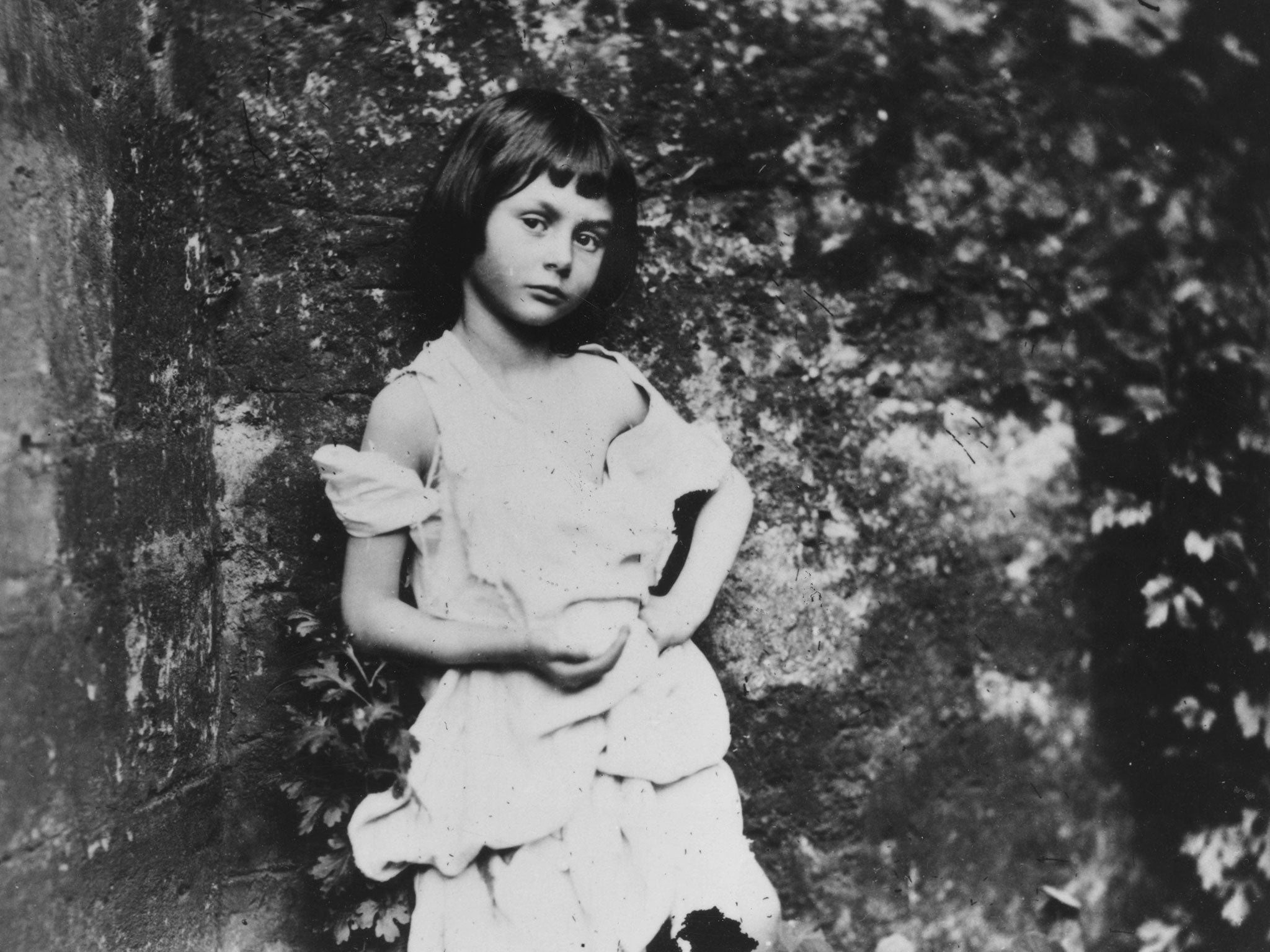‘Lewis Carroll was a lover of children, not an abuser of them’: New book overturns contemporary reputation
Unpublished material contradicts reputation of ‘Alice in Wonderland’ author

The contemporary image of Alice in Wonderland author Lewis Carroll means he is viewed as a social misfit with an unhealthy interest in little girls, taking nude photographs of them by the hundred.
But now one of the leading authorities on Carroll has attacked the validity of his disturbing modern reputation.
Over 40 years, Edward Wakeling has collated thousands of documents dating back to Carroll’s lifetime, including previously unpublished letters and reminiscences of those who knew him. He says they reveal Carroll to be a sociable man who has suffered a character assassination and enjoyed adult company as much as children’s. “It is about time we cleared up, once and for all, the pervading false myth about his unhealthy relationship with children,” Mr Wakeling told The Independent. “He was a lover of children... not an abuser of children.”
Carroll’s relationship with Alice Liddell, the inspiration for his most famous character, has long been at the centre of a debate over his intentions.
Author Katie Roiphe wrote a novel portraying Carroll as holding sexual feelings towards his muse and though she said there was no evidence of child abuse, she said he did experience “impure thoughts”.
The biographer Morton N Cohen also wrote that given Carroll’s “emotional attachment to children as well as his aesthetic appreciation of their forms, his assertion that his interest was strictly artistic is naïve”. But the unpublished material uncovered by Mr Wakeling includes reminiscences of Mabel Amy Burton, who was eight when she met Carroll in 1877.
“As a small child I much disliked strangers, but the personality of this gentleman attracted me and I chatted away with him quite freely,” she recalled.
Mr Wakeling said that nude children appear in “no more than 1 per cent” of Carroll’s 3,000 photographs, adding that body studies were common practice among Victorian photographers. He also criticised “biographers who really don’t do their homework” or others who drum up controversy.
“There must be 30 or 40 biographies since his nephew wrote the first one in 1898. People who write about Carroll realise that they’re not going to get their book published unless they can find a new angle.
“Quite a few have scratched their head and come up with something controversial like ‘Lewis Carroll was Jack the Ripper’; that he didn’t write Alice – Queen Victoria did – that he was having a sexual affair with Alice’s mother and a lot more nonsense.” Like Chinese whispers, untrue facts get shared and embellished, he said, arguing that primary sources give a very different picture of Lewis Carroll, the pseudonym of Charles Lutwidge Dodgson.
Mr Wakeling will release his research later this month in a new book titled Lewis Carroll: The Man and His Circle.
The former chairman of the Lewis Carroll Society said it was natural that the children’s author spoke to his readership and would meet girls more often when visiting family friends, as boys were more likely to be away at school.
Among Carroll’s child friends, Mr Wakeling could not find “a bad word spoken against him”. They included Edith Litton, who was seven when Carroll read her the story of Hans Andersen’s Ugly Duckling.
“Being very sensitive about my ugly little self, it greatly interested me,” she wrote.
Mr Wakeling said: “The vast majority of the biographers say he was a shy, reclusive man. Nonsense. He was a socialite who mixed with the great and the good.”
Next year will mark the 150th anniversary of the publication of Alice in Wonderland.
Subscribe to Independent Premium to bookmark this article
Want to bookmark your favourite articles and stories to read or reference later? Start your Independent Premium subscription today.
